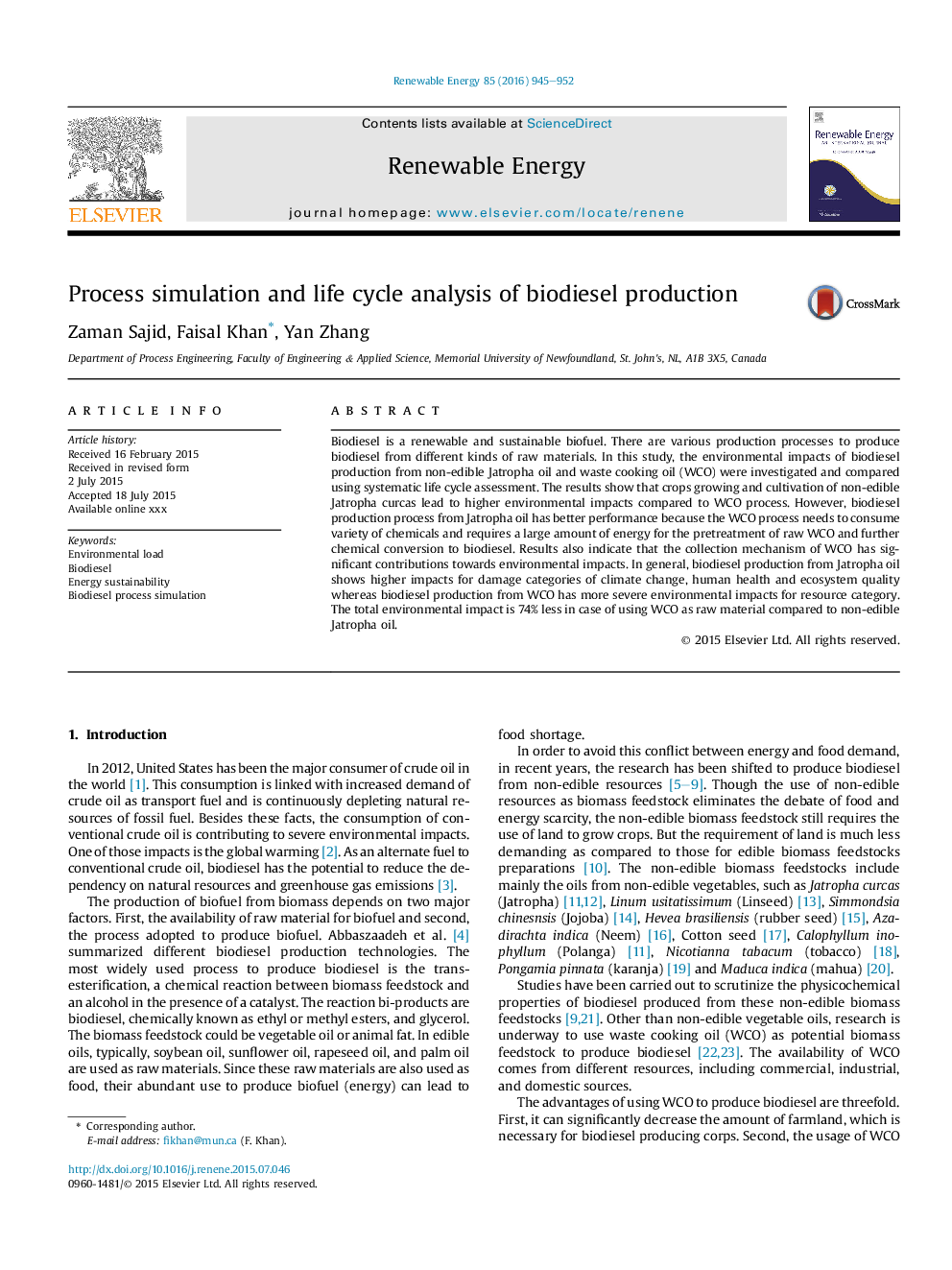| Article ID | Journal | Published Year | Pages | File Type |
|---|---|---|---|---|
| 6767011 | Renewable Energy | 2016 | 8 Pages |
Abstract
Biodiesel is a renewable and sustainable biofuel. There are various production processes to produce biodiesel from different kinds of raw materials. In this study, the environmental impacts of biodiesel production from non-edible Jatropha oil and waste cooking oil (WCO) were investigated and compared using systematic life cycle assessment. The results show that crops growing and cultivation of non-edible Jatropha curcas lead to higher environmental impacts compared to WCO process. However, biodiesel production process from Jatropha oil has better performance because the WCO process needs to consume variety of chemicals and requires a large amount of energy for the pretreatment of raw WCO and further chemical conversion to biodiesel. Results also indicate that the collection mechanism of WCO has significant contributions towards environmental impacts. In general, biodiesel production from Jatropha oil shows higher impacts for damage categories of climate change, human health and ecosystem quality whereas biodiesel production from WCO has more severe environmental impacts for resource category. The total environmental impact is 74% less in case of using WCO as raw material compared to non-edible Jatropha oil.
Related Topics
Physical Sciences and Engineering
Energy
Renewable Energy, Sustainability and the Environment
Authors
Zaman Sajid, Faisal Khan, Yan Zhang,
